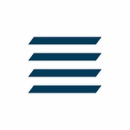When Lilac Mohr was 14, she asked her mother why she was the lone girl in her ninth grade programming class.
“Girls aren’t interested in programming,” her mother told Lilac.
Six years later, Lilac found herself as the sole woman on her software engineering team. Why?
“Women don’t apply,” her boss responded.
After over two decades as a software engineer, Mohr has often been the solitary woman not only in the room, but in entire organizations. Now, as the senior director of engineering for flow visualizations at Pluralsight, Lilac Mohr has stopped wondering and started taking action.
“I stopped asking ‘why’ and started asking ‘how’ — how can I influence change?” Mohr said.
Underrepresentation in engineering is not new: The number of women engineers has only risen by 12 percent in the past 50 years. For tech leaders like Mohr, the solution starts with active, intentional recruiting. Mohr told Built In Boston that Pluralsight often invites women to join the team and has placed strong female role models at all levels of the organization.
“We don’t hire women to fill a quota,” she added. “We hire diverse talent because that’s how we build collaborative, innovative and high-performing teams.”
Disrupting the imbalance in engineering calls for employer support within the scope of work and far beyond it. Ankit Gupta, CTO at Reverie Labs, champions an exhaustive culture of advocacy.
“We recognize that external events — like the recent SCOTUS decisions — can have a huge bearing on one’s psychological safety,” he said. “Team members of all genders have offered their time to support others on the team.”
Whether partnering with ally groups like Women In Tech and WomenHack — as the Federal Reserve Bank of Boston has done — or modeling vulnerability and uplifting ERGs, reshaping the landscape of diversity in engineering requires meaningful attention and consistent action. Fortunately, Boston tech leaders like FedNow, Pluralsight and Reverie Labs are working to build a seat at the table for women in engineering.
Pluralsight is a technology workforce development organization that strives to help companies build better products by developing critical skills, improving processes and gaining insights. Pluralsight leverages data and provides strategic skills consulting to help its customers grow. As a veteran engineer, Senior Director of Engineering for Flow Visualizations Lilac Mohr advocates for human connection and storytelling, among more formal support. “It’s in the sharing of stories that we find the unexpected common threads that bind us together — the powerful human connections that let us know that we belong,” Mohr said.
Describe your recruiting efforts to get more women into engineering roles at your company.
After a two-decade career in a male-dominated industry where I was often the only female software engineer in the entire start-up organization, I started asking “how?” When you create a culture where women feel they belong, they also start asking “how.”
At Pluralsight, instead of sitting back and waiting for other women to join us, we invite them. As an engineering leader, I encourage our female team members to reach out to their networks, and I personally engage in recruiting efforts. It’s especially important not to simply talk about our commitment to diversity, but to truly live by our values.
I remember a candidate sharing her excitement at being interviewed by me and another female engineering leader. She was confident that she wanted to work at Pluralsight, having been interviewed by all men at several other companies.
What makes your company an attractive place to work for women in engineering?
The flow product and engineering group at Pluralsight has strong female role models at all levels of the organization.
Women who work at Pluralsight are encouraged to bring their whole selves to work. Our leaders model this value with personal vulnerability — and by creating a safe space for team members of all genders and backgrounds to feel seen, heard and appreciated. We have benefits that support work-life balance including unlimited PTO, recharge weeks, company-wide week-long breaks and a generous maternity and paternity leave.
When team members share their experiences, we no longer see them in a single dimension.”
Once you hire women in engineering positions, how does your company support them?
ERGs are one way that Pluralsight supports our diverse workforce. We currently have three ERGs: Women at Pluralsight, See Color and Pride at PS. They are not only filled with coworkers who identify as belonging to those groups, but also with numerous allies. These ERGs sponsor initiatives and events from mentorship programs to cultural celebrations that cultivate a sense of belonging across the company.
When team members share their experiences, we no longer see them in a single dimension but get a beautiful picture of the intersectionality of identities that make up the humans we work with. Pluralsight is the first company I’ve worked at that truly provides a safe space for women in technology, and for all team members to be authentic. For this, I am grateful.
Reverie Labs is a healthtech company that aims to apply cutting-edge technology to developing next-generation cancer therapies. As a self-described “drug discovery company leveraging the latest computational tools to radically accelerate medicinal chemistry,” Reverie labs strives to advance cancer treatments. When Built In Boston connected with Reverie Labs, CTO Ankit Gupta spoke to its diverse hiring practices. “Rather than looking for people that look and sound like ourselves, we try to find people that bring a new skill set or way of thinking to the team,” he said.
Describe your recruiting efforts to get more women into engineering roles at your company.
Our team has been making efforts to attract women into engineering roles across the board. Our engineering team hosts regular “search parties” for candidates, where we all get into a conference room together and look for people to reach out to. In these meetings, we ask team members to focus on seeking out women and underrepresented minorities — so that we can have a more balanced recruiting pipeline.
At a broader level, our recruiting process emphasizes looking for people that are cultural additions to our team, rather than merely cultural fits. During the interview process, we train our interviewers to focus their questions around gauging technical skills and understanding what new perspectives and experiences a candidate can bring to the team — along with identifying any personality red flags, like negative comments about past colleagues.
Our recruiting process emphasizes looking for people that are cultural additions to our team, rather than merely cultural fits.”
What makes your company an attractive place to work for women in engineering?
We make specific efforts to support and grow women in our engineering roles. We have women in technical roles across our team — including women in technical leadership roles who have been promoted from individual contributors to engineering managers.
Despite being an early-stage company, we have a strong culture of mentorship. Experienced team members regularly work with junior members to onboard them, share resources and answer questions.
More broadly speaking, our engineering team seeks individuals with low egos and a strong desire to teach and learn. Since our team consists of a mix of data scientists, software engineers, computational chemists and medicinal chemists — and most of our meetings include people from multiple disciplines — it is quite literally impossible for anyone to be the smartest person in the room.
We seek individuals that thrive in this environment: one in which they are learning from their peers, teaching their peers and leaving their egos at the door. Finally, we train the people running meetings to make sure that not just the loudest voices get heard. Everyone’s opinions are considered.
Once you hire women in engineering positions, how does your company support them?
We foster a psychologically safe and welcoming environment for women on our team — both through work culture and support in life beyond work. In our social events, we have made efforts to be as inclusive as possible to all genders and backgrounds. This includes making events remote-friendly or avoiding alcohol consumption as the centerpiece of any social event.
We recognize that creating a safe and equitable work environment means understanding our team members’ needs outside of work. At baseline, this means a comprehensive benefits package that supports a healthy life, including great medical coverage for employees and their families. We also offer 12 weeks of leave for new parents of any gender and a flexible return schedule afterwards. We conduct regular salary reviews to ensure that all individuals at the same level have equal pay.
Federal Reserve Bank of Boston serves as a part of the Central bank of the United States. The Boston Fed works to promote sound growth and financial stability in New England and the nation. FedNow Chief Information Officer and Senior Vice President Dan Anthony feels a personal commitment to DEI. “If we are building a product that meets and serves the needs of the population, we should have a team that represents our population,” Anthony told Built In Boston.
Describe your recruiting efforts to get more women into engineering roles at your company.
FedNow is building a product to meet the needs of our citizens and residents — all of them. We actively reach out to groups representing and supporting women, such as Women In Tech and WomenHack and work with our recruiting team to ensure we have a diverse candidate pool composed of women and other under-represented groups.
The pandemic has presented challenges in some of the outreach we’d like to have invested in, and we’ve seen some historic changes in how people think about work and careers. We’re working with partners outside the Bank to create opportunities for both career starters and women returning to their careers.
As an organization, FedNow is only about 18 months old, but these are areas we’re focused on developing. Looking further ahead, we’ll be looking for ways to encourage women to enter the technology field. Technology is a challenging field in which to recruit women — mostly because of its notorious lack of diversity and bias. We can, and should, work towards improving both those things.
What makes your company an attractive place to work for women in engineering?
The Federal Reserve Bank of Boston is focused on Diversity, Equity and Inclusion (DEI). I’m personally committed to DEI and see this as one of my obligations: to make sure we are promoting opportunities for all our team.
I believe everyone should have the chance to take advantage of all opportunities, just as I was privileged enough to have. The Federal Reserve is unique in that it has a mission that serves the nation. FedNow, which will deliver instant payments to the country, is super exciting, from both a technical perspective, a social perspective and the impact it will have on our citizens and businesses.
It’s a product I can actually explain to my mom and dad, and it’s a product that will touch everyone in the nation. You’ll get to work on interesting work, doing important things that will last decades. When my daughter is in college in 20 years, I’ll be able to tell her that I’m sending her money on the product that I worked on. How many times do opportunities like that come along? And best of all, it’s in an environment with an amazing and supportive culture — where you can be recognized for your talents, thrive and be respected.
When I think about support and inclusion, a ‘speak up’ culture is key.”
Once you hire women in engineering positions, how does your company support them?
Inclusiveness is both grassroots and critically dependent on leadership participation. When I think about support and inclusion, a “speak up” culture is key. This is foundational to growth, job satisfaction, and ultimately, happiness.
FedNow is a new organization, but we’re investing in career paths, training and identifying opportunities to help people grow. Tech has historically been challenging in this area, but we are building a culture in which all employees, including women, can be recognized for their competencies, thrive and succeed.
We want to provide clarity on career paths and other opportunities for development. This means working together to grow and develop career paths for all employees, including women.
I take pride in a conversation with a female colleague who told me she always felt treated with respect at FedNow. This seems like such a small thing, and something we should be able to take for granted — but across an organization as large as FedNow, it’s a testament to the culture we strive to build, and the commitment we make every day to support women in tech.











